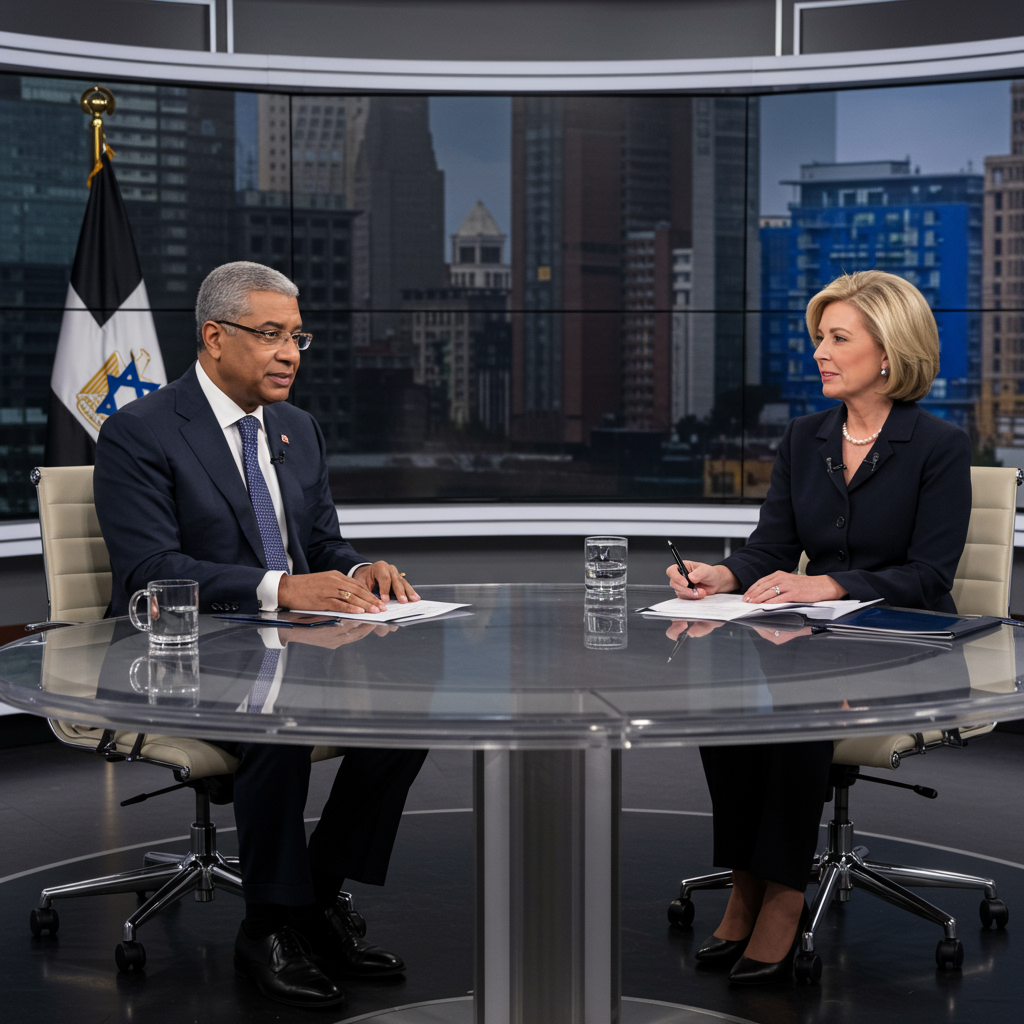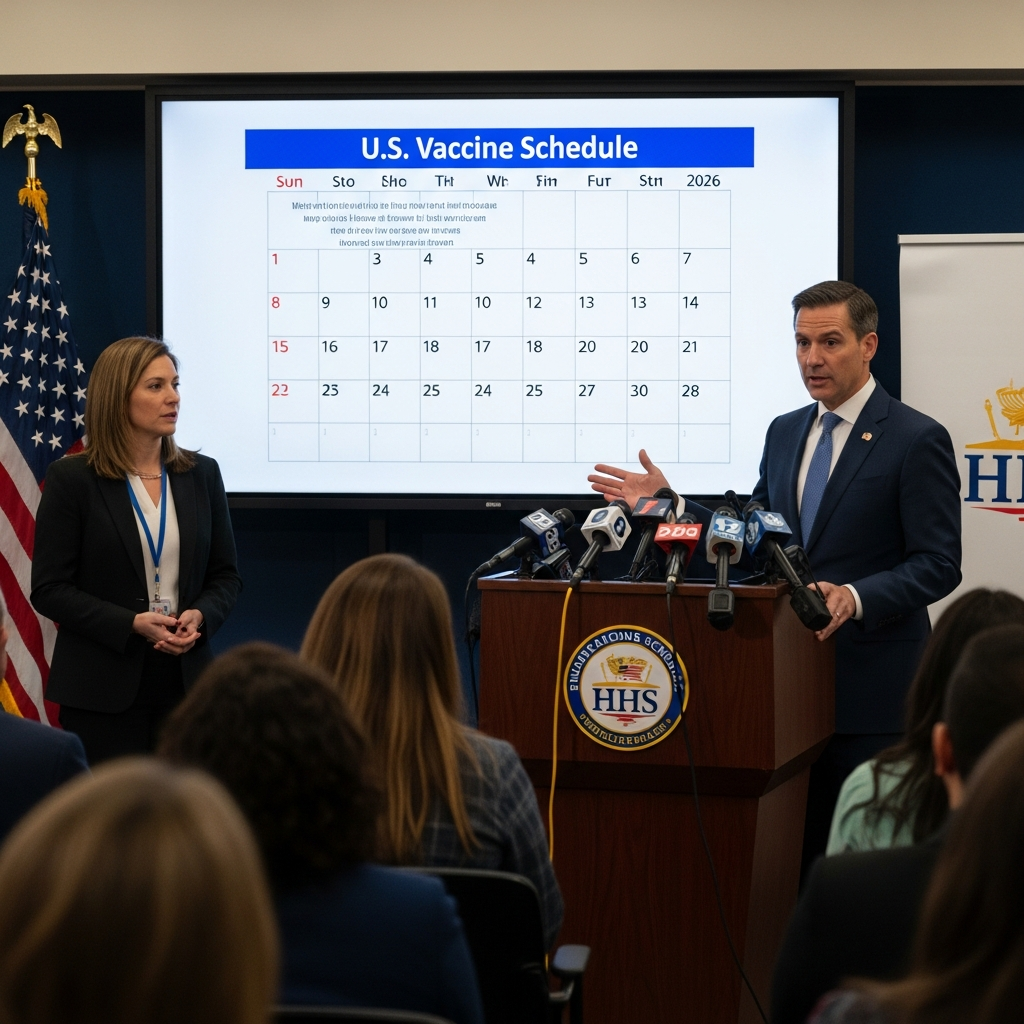Egypt’s Foreign Minister, Dr. Badr Abdelatty, recently offered a pivotal glimpse into the intricate future of Gaza, highlighting the “Trump peace plan” and the complex web of diplomatic efforts. In an exclusive interview on “Face the Nation with Margaret Brennan,” Abdelatty outlined Egypt’s vital role in brokering peace, addressing immediate humanitarian crises, and shaping long-term stability in the Middle East. His insights, shared from Cairo, revealed critical details on hostage negotiations, security provisions, and the monumental task of Gaza reconstruction, underscoring the urgency and challenges facing the region.
Advancing the Trump Peace Plan: Hostage Release and Initial Steps
Foreign Minister Badr Abdelatty expressed firm confidence in the full implementation of the initial phase of the “Trump peace plan.” This critical first stage, he affirmed, requires adherence from all involved parties, with Egypt actively engaging both Palestinians and Hamas to ensure its success. Key components of this initial phase include the release of hostages held by Hamas, Israel’s release of Palestinian detainees, and the return of bodies of deceased individuals – a sensitive process requiring time for collection. Crucially, this phase also mandates the unimpeded delivery of humanitarian aid to Gaza, directly confronting the dire famine and starvation gripping the population.
President Trump’s impending visit to Egypt to meet with President al-Sisi in Sharm El-Sheik further underscores the gravity of these discussions, particularly concerning the Gaza agreement. The Vice President, J.D. Vance, also voiced strong confidence in the imminent hostage release, celebrating what he described as a “sustainable peace” on the horizon, achieved through the administration’s “nontraditional diplomacy.” Reports from East Jerusalem painted a vivid picture of the emotional intensity surrounding these negotiations, with an Israeli vigil at Hostage Square reflecting public anger over perceived delays. The exchange detailed involves 48 hostages, both living and deceased, for 250 Palestinian prisoners serving life sentences and an additional 1,700 detained since October 2023. Israeli troops are withdrawing from certain areas, allowing Palestinians to return to their devastated homes, while Gaza’s health ministry tragically reports over 67,000 fatalities, and UNICEF stresses the profound need for psychological support for every child. Senator Chris Murphy acknowledged this ceasefire as a “clear win” but expressed “heartbreak and fury” over the year-long delay, attributing progress to President Trump’s “sustained pressure” on Israeli Prime Minister Netanyahu.
Shaping Gaza’s Security: International Forces and Local Training
A cornerstone of Gaza’s future stability involves comprehensive security arrangements. Foreign Minister Abdelatty confirmed that the deployment of an international peacekeeping force is actively “on the table,” an initiative Egypt strongly supports. He noted that multiple countries have already signaled their readiness to contribute troops to this crucial mission. Egypt is diligently working to secure a mandate from the UN Security Council, which is essential to endorse this proposal and clearly define the mission and duration of these ground forces.
The proposed mission envisions peacekeeping operations and rigorous training for Palestinian police, empowering them for effective law enforcement. This force is intended to be transitional, paving the way for Palestinians to assume full governmental responsibilities as the realization of a Palestinian state progresses. Egypt, in close coordination with Jordan, is already actively training up to 5,000 Palestinians for eventual deployment within Gaza. Abdelatty indicated Egypt’s own willingness to commit troops, albeit “within specific parameters” dictated by a Security Council mandate and a precisely defined mission. Notably, Indonesia’s leader has already pledged a significant contingent of 20,000 troops. Vice President Vance added that the broader phase two plans include the deployment of 200 U.S. troops from Central Command (not positioned within Gaza itself) for monitoring and mediation, alongside ground troops from Muslim-majority nations like Indonesia and Gulf Arab states, deemed critical for Gaza reconstruction and dismantling terrorist networks.
The Vision for Palestinian Statehood: A Comprehensive Solution
Foreign Minister Abdelatty powerfully articulated Egypt’s unwavering stance on Palestinian statehood, describing it as the “final, comprehensive solution” and the “end game.” He drew profound lessons from past conflicts, asserting that without resolving the Palestinian cause—identified as the core of regional instability—and without upholding Palestinians’ legitimate aspirations for statehood, genuine peace and stability remain elusive. He noted that the “Trump peace plan” itself references statehood, and a significant 144 countries recently voted in favor of the two-state solution at the UN in New York, highlighting widespread international consensus.
While acknowledging that immediate priorities involve ending the conflict, providing aid, and focusing on Gaza’s early recovery and reconstruction, the long-term strategic goal remains Palestinian statehood. This vision starkly contrasts with what Abdelatty described as the U.S. President’s “vague language” and the Secretary of State’s assessment that statehood is “far off in the future.” Egypt’s commitment underscores a consistent diplomatic push for a political resolution that addresses the root causes of the conflict, paving the way for a stable future for all peoples in the Middle East.
Rebuilding from Devastation: Gaza’s Reconstruction Efforts
The scale of destruction in Gaza is immense, presenting a monumental challenge for reconstruction. UN estimates paint a grim picture: 92% of housing units and nearly 92% of schools are either destroyed or damaged. Furthermore, 77% of the total road network has suffered damage, and 86% of total cropland is now destroyed. Addressing this catastrophe requires unprecedented international cooperation and financial commitment.
Foreign Minister Abdelatty conveyed Egypt’s “full confidence” in President Trump’s leadership and vision for peace, hailing him as “the only person who is capable to end the war and to open a new chapter in the Middle East.” This new chapter, he emphasized, promises hope, prosperity, and peace for all regional populations, including Israelis and Palestinians. To spearhead the reconstruction efforts, Egypt is actively collaborating with the United States and a wide array of international partners. These include Germany, the European Union, France, Italy, Spain, Qatar, the Gulf Cooperation Council, and Japan, all of whom are ready to participate in an international conference. This crucial conference aims to merge an “Arab and Islamic plan for the reconstruction” with the existing “Trump peace plan,” creating a unified strategy for rebuilding Gaza. Egypt is also working closely with the UN Deputy Secretary General for Humanitarian Affairs, Tom Fletcher, to finalize a comprehensive assessment report on the reconstruction needs, which will guide these ambitious efforts. This collaborative approach highlights the global recognition of the urgent need to address the humanitarian and infrastructural crisis.
Complexities and Outlook for Regional Peace
The path to peace and reconstruction in Gaza is fraught with complexities, requiring not just political will but also immense logistical coordination and sustained international commitment. The disparities between immediate humanitarian relief, short-term security, and the long-term vision of Palestinian statehood present significant diplomatic hurdles. Political delays, as highlighted by Senator Murphy regarding Netanyahu’s approach, demonstrate how internal dynamics can impede progress.
Egypt’s pivotal role, from mediating hostage releases to training future Palestinian police and spearheading reconstruction conferences, positions it as a key facilitator in navigating this intricate landscape. The involvement of numerous international actors and the convergence of different peace plans underscore the global investment in finding a durable solution. Achieving true stability will depend on the sustained application of diplomatic pressure, transparent allocation of resources for rebuilding, and a unified commitment to the aspirations of the Palestinian people, transitioning Gaza from a conflict zone to a self-governing entity.
Frequently Asked Questions
What are the key components of the “Trump peace plan” for Gaza’s initial phase?
The initial phase of the “Trump peace plan,” as detailed by Egyptian Foreign Minister Badr Abdelatty, primarily focuses on immediate de-escalation and humanitarian measures. It mandates the release of all hostages held by Hamas, alongside the release of Palestinian detainees by Israel. Additionally, it ensures the return of the bodies of deceased individuals, a process expected to take time. Crucially, this phase demands the unimpeded flow of all humanitarian assistance into Gaza to combat the severe famine and starvation. Egypt is actively engaging with all parties to ensure these critical elements are honored.
Which countries are involved in the proposed international conference for Gaza’s reconstruction?
Egypt is spearheading an international conference for Gaza’s reconstruction in cooperation with the United States and a broad spectrum of global partners. These key participants include Germany, the European Union, France, Italy, Spain, Qatar, the Gulf Cooperation Council, and Japan. This collaborative effort aims to integrate an “Arab and Islamic plan for the reconstruction” with the “Trump peace plan,” creating a unified strategy to address the immense devastation in Gaza, where nearly 92% of housing and schools are damaged or destroyed.
What conditions must be met for Egypt to commit troops to an international force in Gaza?
Egypt has expressed its readiness to commit troops to an international peacekeeping force in Gaza, but only “within specific parameters.” Foreign Minister Abdelatty emphasized two primary conditions: first, there must be a clear mandate from the UN Security Council endorsing the proposal. Second, the mission and duration of these troops on the ground must be precisely defined. The proposed role for these forces would involve peacekeeping and training Palestinian police for law enforcement, serving as a transitional measure until Palestinians can assume full responsibility for governance and security.
Conclusion
The interview with Egyptian Foreign Minister Badr Abdelatty offered invaluable insights into the multifaceted challenges and diplomatic efforts defining Gaza’s future. From the critical first phase of the “Trump peace plan” focusing on hostage releases and humanitarian aid, to the complex architecture of international security arrangements and the immense undertaking of reconstruction, Egypt remains a central player. Abdelatty’s unwavering advocacy for Palestinian statehood underscores the profound belief that a comprehensive political solution is indispensable for lasting peace in the Middle East. As global partners convene to rebuild and stabilize the region, the discussions and initiatives highlighted in this conversation represent crucial steps towards a hopeful, yet undoubtedly challenging, path forward.



